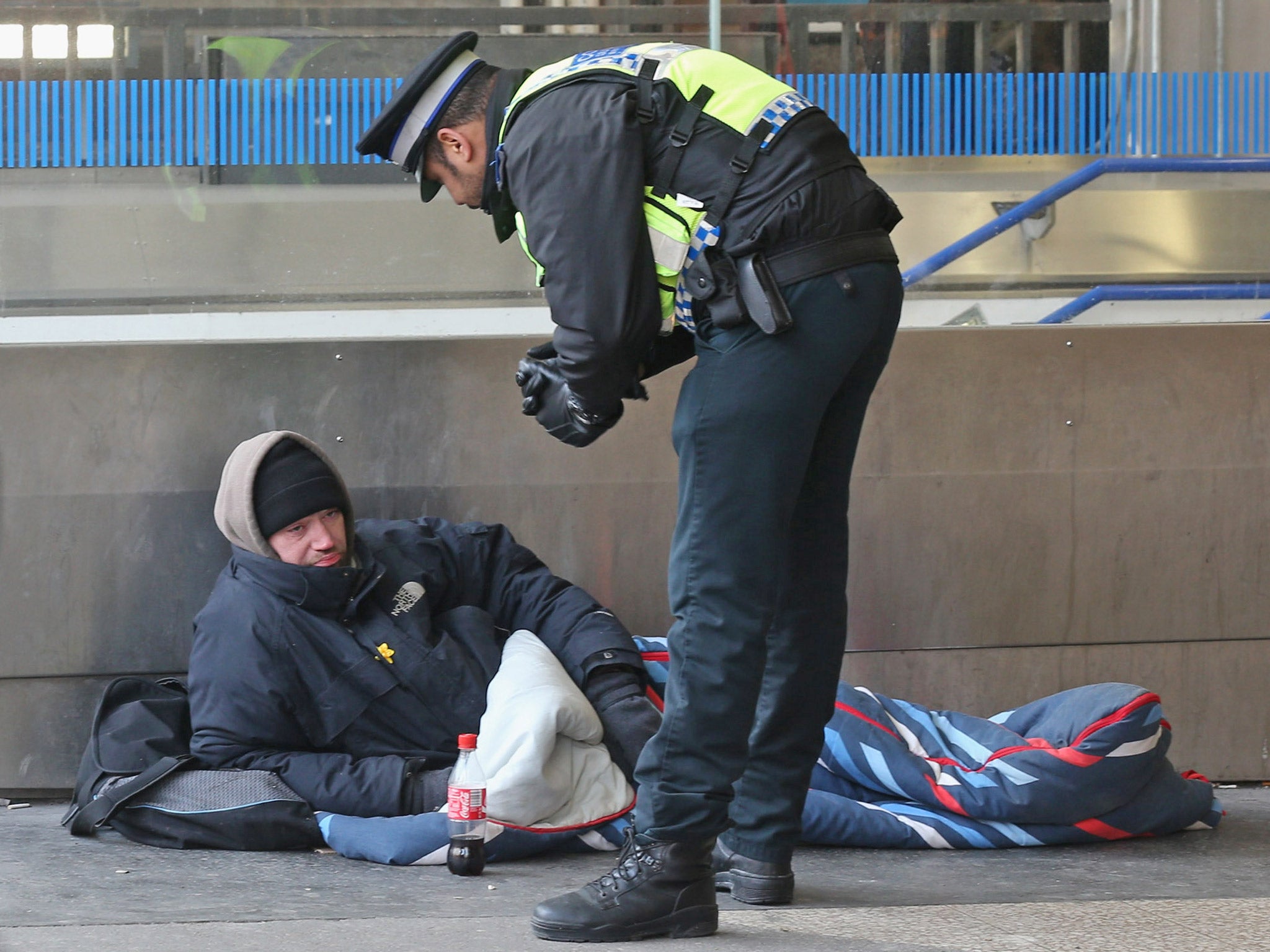English councils failing to help most vulnerable, homelessness charity finds
Undercover investigation finds many councils turning needy people away

Your support helps us to tell the story
From reproductive rights to climate change to Big Tech, The Independent is on the ground when the story is developing. Whether it's investigating the financials of Elon Musk's pro-Trump PAC or producing our latest documentary, 'The A Word', which shines a light on the American women fighting for reproductive rights, we know how important it is to parse out the facts from the messaging.
At such a critical moment in US history, we need reporters on the ground. Your donation allows us to keep sending journalists to speak to both sides of the story.
The Independent is trusted by Americans across the entire political spectrum. And unlike many other quality news outlets, we choose not to lock Americans out of our reporting and analysis with paywalls. We believe quality journalism should be available to everyone, paid for by those who can afford it.
Your support makes all the difference.Some of the most vulnerable homeless people in England, including domestic violence victims and those with learning difficulties, are shunned by councils and forced to sleep rough, according to an undercover investigation by Crisis.
The homeless charity sent "mystery shoppers" - posing as homeless people in crisis - to 16 councils across England between February and April this year. The results of the investigation, released today, reveal many homeless people get little or no help from their council. This is because they are not considered a priority and therefore councils have no legal duty to house them. In many cases even those with learning difficulties or victims of domestic violence are turned away without help, campaigners claim.
In 50 out of 87 visits to councils investigators received little or no help – leaving them with the prospect of sleeping on the streets. In a third of visits to councils, investigators were prevented from speaking to a Housing Advisor and left local authorities without receiving any help at all.
And councils often fail to identify the most vulnerable. Where investigators posed as people with learning difficulties or escaping domestic violence, only 20 out of 52 cases were considered a priority.
More than 111,000 households were registered by councils as homeless last year, of which some 21,000 were deemed as not in priority need. Many such people will have received little or no help, according to campaigners.
Jon Sparkes, chief executive of Crisis, said: “Homeless people who ask their council for help are being turned away to sleep on the streets – cold, desperate and forgotten. This is nothing short of a scandal. Too often the door is slammed in people’s faces, leaving them with nowhere else to turn.”
Campaigners are calling for the three main political parties to make a manifesto commitment to review the support given to single homeless people under the law.
Responding to the research, Peter Box, chair of the Local Government Association’s environment, economy, housing and transport board, said: “Where homelessness does take place councils have an important role to treat people who need their help with respect and to place them into secure, affordable accommodation.”
He added: “The ability of councils to do this is only getting tougher as a result of 40 per cent cuts to council budgets over the lifetime of this Parliament and a shortage of affordable housing.”
The council housing waiting list has increased by a third over the last 10 years to 1.7 million households. In contrast, there were just 112,000 homes built in England in 2013.
In Scotland, unlike England, all homeless households are entitled to temporary accommodation and all unintentionally homeless households have a right to settled accommodation. And in Wales, local authorities are required to "help to secure accommodation" for those not in priority need.
Join our commenting forum
Join thought-provoking conversations, follow other Independent readers and see their replies
Comments